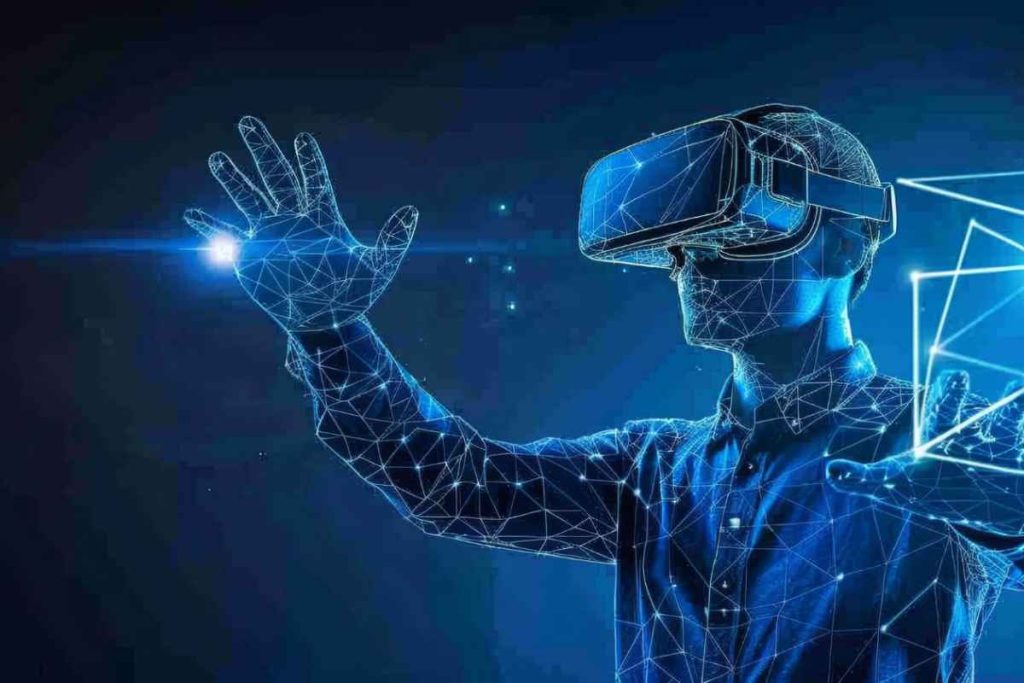The digital landscape is undergoing a profound transformation, driven by future tech trends and cutting-edge innovations that are reshaping how we interact with technology. From artificial intelligence and machine learning to blockchain and the Internet of Things (IoT), these advancements are not just buzzwords; they are the building blocks of a new era in digital interaction. As we delve into these trends, we will explore how they are revolutionizing industries, enhancing user experiences, and creating new opportunities for businesses and individuals alike.
In the following sections, we will take a closer look at the most significant innovations that are defining the future of technology. You will learn about the impact of AI on automation and decision-making processes, the role of blockchain in ensuring security and transparency, and how IoT is connecting devices in ways we never thought possible. Each of these trends is not only fascinating but also essential for understanding the future of our digital world.
As you continue reading, prepare to be inspired by the potential of these technologies to transform everyday life and business operations. Whether you are a tech enthusiast, a business leader, or simply curious about the future, this exploration of future tech trends will provide valuable insights and practical knowledge. Join us on this journey to uncover the innovations that are shaping our digital landscape and discover how you can be a part of this exciting evolution.
Artificial Intelligence and Machine Learning Advancements
Artificial Intelligence (AI) and Machine Learning (ML) are at the forefront of technological innovation, driving significant changes across various industries. These technologies enable systems to learn from data, improving their performance over time without explicit programming. As AI algorithms become more sophisticated, they are being integrated into applications ranging from healthcare diagnostics to autonomous vehicles, enhancing efficiency and accuracy.
The rise of AI-powered tools is reshaping the digital landscape by automating routine tasks, providing personalized user experiences, and enabling predictive analytics. Businesses are leveraging these advancements to gain insights from vast amounts of data, leading to better decision-making and strategic planning. As AI continues to evolve, its impact on society and the economy will be profound, raising questions about ethics, job displacement, and the future of work.
The Internet of Things (IoT) Revolution
The Internet of Things (IoT) refers to the interconnected network of devices that communicate and exchange data over the internet. This technology is transforming everyday objects into smart devices, allowing for greater automation and control. From smart home appliances to industrial sensors, IoT is enhancing efficiency and convenience in various sectors.
As IoT devices proliferate, they generate vast amounts of data that can be analyzed to improve operations and user experiences. For instance, smart cities utilize IoT technology to optimize traffic flow, reduce energy consumption, and enhance public safety. However, the rapid expansion of IoT also raises concerns about data privacy and security, necessitating robust measures to protect sensitive information.
Blockchain Technology Beyond Cryptocurrency
Blockchain technology, initially developed for cryptocurrencies, is now being explored for a wide range of applications beyond digital currencies. Its decentralized and transparent nature makes it an ideal solution for enhancing security and trust in various industries, including finance, supply chain management, and healthcare.
By providing a secure and immutable ledger, blockchain can streamline processes, reduce fraud, and improve traceability. For example, in supply chain management, blockchain enables real-time tracking of goods, ensuring authenticity and reducing the risk of counterfeiting. As organizations recognize the potential of blockchain, its adoption is expected to grow, reshaping the digital landscape and fostering innovation.
Augmented Reality (AR) and Virtual Reality (VR) Experiences
Augmented Reality (AR) and Virtual Reality (VR) are revolutionizing the way we interact with digital content. AR overlays digital information onto the real world, enhancing our perception of reality, while VR immerses users in entirely virtual environments. These technologies are finding applications in gaming, education, training, and marketing, creating engaging and interactive experiences.
The potential of AR and VR extends beyond entertainment; they are being used in fields such as healthcare for surgical training and in real estate for virtual property tours. As hardware becomes more accessible and software continues to improve, the adoption of AR and VR is expected to increase, offering new ways for businesses to connect with customers and enhance their offerings.
5G Technology and Its Impact on Connectivity
The rollout of 5G technology is set to transform the digital landscape by providing faster and more reliable internet connectivity. With significantly lower latency and higher bandwidth, 5G enables seamless communication between devices, paving the way for innovations in IoT, autonomous vehicles, and smart cities.
As 5G networks become more widespread, they will facilitate the development of new applications and services that require real-time data processing. This enhanced connectivity will not only improve user experiences but also drive economic growth by enabling new business models and opportunities. However, the implementation of 5G also presents challenges, including infrastructure costs and regulatory hurdles that need to be addressed.
Cybersecurity Innovations in a Digital World
As technology advances, so do the threats to cybersecurity. With the increasing reliance on digital systems, protecting sensitive data has become a top priority for organizations. Innovations in cybersecurity, such as AI-driven threat detection and blockchain-based security solutions, are emerging to combat these challenges.
Organizations are adopting a proactive approach to cybersecurity by implementing advanced technologies that can identify and respond to threats in real-time. Additionally, the rise of remote work has necessitated the development of secure communication tools and practices. As cyber threats continue to evolve, ongoing investment in cybersecurity innovations will be crucial to safeguarding digital assets and maintaining trust in the digital landscape

